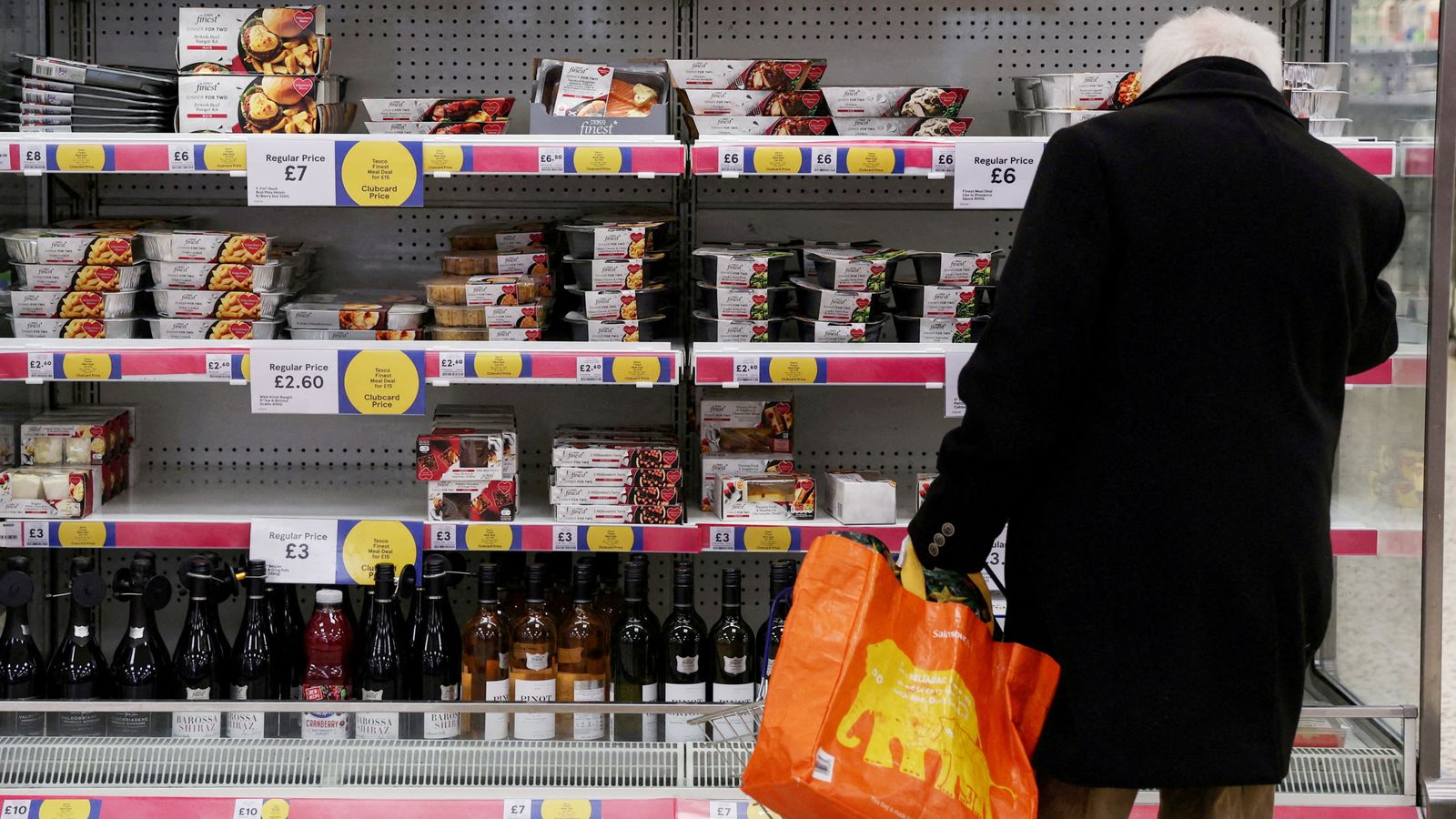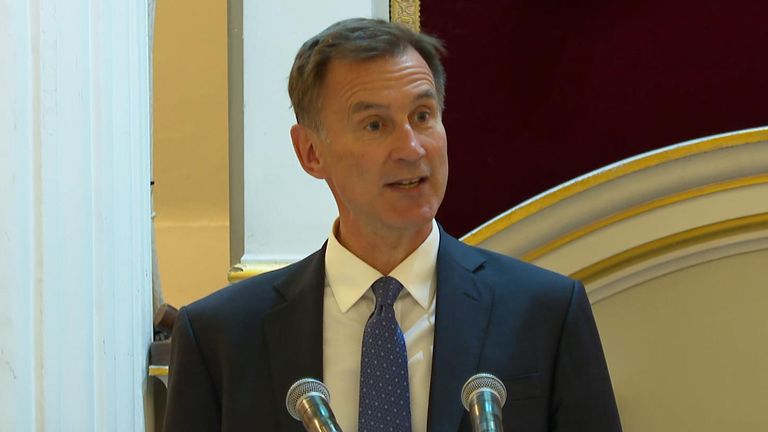Supermarket deals have helped grocery price inflation ease for a fourth consecutive month.
Closely watched data from Kantar Worldpanel, which tracks supermarket sales and prices, charted the steepest decline in checkout costs during the four weeks to 9 July since grocery inflation peaked in March.
Its inflation measure fell by 1.6 percentage points to 14.9% over the period – bolstering hopes that the worst of the pain from the pace of price increases at the tills is over as the wider cost of living crisis continues to shift.
Kantar said while the grocery inflation figure reflected a further easing in the cost of many staple goods, there was a marked move towards customer spending on promotions, which now accounted for just over a quarter of the total market.
As the grocery sector’s prices continue to be investigated by the Competition and Markets Authority, Kantar’s head of retail Fraser McKevitt said: “One of the biggest shifts we’ve seen in this [promotions] area is retailers ramping up loyalty card deals like Tesco’s Clubcard Prices and Sainsbury’s Nectar Prices.
“This could signal a change in focus by the grocers who had been concentrating their efforts on everyday low pricing, particularly by offering more value own-label lines.”
Kantar noted that Sainsbury’s rate of sales growth had overtaken that of market leader Tesco over the four-week period.
Its report said customers had, on average, saved themselves from paying an extra £353 over the past year by changing their typical grocery habits, such as through trading down to cheaper products or visiting different grocers.
New threat from war to food prices
The report was released against a backdrop of new concerns about the outlook for food security and many staple food costs.
Prices for corn, wheat and soybean surged on commodity markets on Monday after Russia formally withdrew from a deal brokered by the United Nations that enabled millions of tonnes of grain exports from Ukraine to reach their destination.
Nearly 33 million tonnes of corn, wheat and other grains have been exported by Ukraine under the agreement.
The war in Ukraine has been a major factor behind energy-led inflation in Western economies though the cost of living crisis is continuing to evolve.
Read more:
Food prices predicted to fall as BoE’s Bailey sees ‘marked’ dip in inflation ahead
Spending calculator: See which prices have gone up or down
Inflation expected to fall this week
While food inflation is easing, the main rate of inflation in the UK has proved more stubborn to bring down than expected with the Bank of England suggesting that wage rises, at a rate above 7%, are a factor and too high.
The Bank’s governor has also accused companies of looking to make excessive profits.
Official figures on Wednesday are tipped by economists to show that the main Consumer Prices Index (CPI) measure of inflation eased back to an annual rate just above 8% from 8.7% in May.
The data is widely expected to reflect Kantar’s findings which offer some limited relief for hard-pressed family budgets.
While energy costs have fallen back, finances are facing an additional squeeze from the effects of the Bank’s interest rate hikes aimed at tackling inflation with some mortgage rates at 15-year highs.


